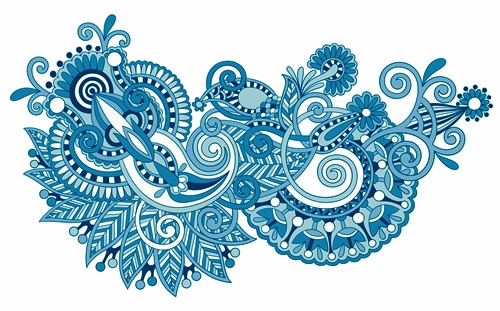QUANTUMGRACE.NET
A great teacher
is someone who inspires you to broaden your horizons
and encourages you to walk to the farthest edge of the highest cliff,
because he knows you can touch the sky.
A great master
is someone who comes along
and hurls you over the edge of the cliff,
because he knows you can fly.
The saying goes, "When the student is ready, the teacher will appear." And I can assure you that they do appear; in exactly the right place, at precisely the right time—and they appear with a lesson plan amazingly specific to the individual student. I have seen this happen so many times in my life that I don't even think about it anymore, but there is another part to the saying that I had never heard until recently, that goes, "And when the teacher is ready, the master will arrive."
The first time I ever heard this, I couldn't imagine how I had lived my entire life without ever knowing there was a second half to this well-known, ancient saying. I had heard it said, possibly hundreds of times, so why hadn't I known there was another part to it? Perhaps I wasn't ready to reflect upon the many levels of divine education or, perhaps I was not yet prepared to believe in the existence of a master—a living one, no less.
When I did finally become aware that there was a second half to the saying, I began to wonder what the difference was between the one called "teacher" and the one called "master." How was I to know one from the other? What exactly does a master look like anyway?
I have to admit, upon asking myself these questions, I was bombarded with visions of "he who sits upon the mountaintop and chants beneath the stars." And my immediate thought, should the master ever arrive on my doorstep, was, Please God, don't let him be wearing a robe and sandals. I just can't do the robe and sandals thing, not in this lifetime anyway.
To tell you the truth, the mere thought of a master being available upon a potential teacher's readiness scared me to death. Maybe I don't really want to be an inspiring teacher-poet-author, I thought. Maybe I don't really want to teach; I could just as easily develop a passion for basket weaving or something much less apt to bring about the dreaded arrival of the master!
To say the least, I was worried. Very worried. After all, I haven't eaten granola since some time in the mid-'70s, I'm an award-winning java junkie and I can't, for even one moment, ever imagine myself chanting. So please, I thought, whoever, whatever, or wherever you are—let us never mention chanting!
And then, of course, there were additional questions, as my mind is famous for all sorts of intricate ponderings. But the question, "How will I know if one arrives?" seemed to be my most pressing concern at the time. Come to find out, though, masters don't actually "arrive" per se—they just nonchalantly leave their doors open as if they're expecting you, and if you happen to be in the neighborhood and find yourself intrigued by the one door that isn't closed, you can be reasonably sure that a master is inside waiting for you. It's quite a mysterious thing, but I know it's true, because not so very long ago, I walked through just such a door—and there really was a master waiting on the other side.
Of course, I didn't know he was a master at first. No robe, no sandals and (thank God), no granola! As a matter of fact, he is more "human" than one would ever imagine. This master, the one who left the door open for me, is a brilliant businessman, a best-selling author, an Internet genius, an extraordinary father, and a wonderful friend and guide. This master is an intuitive consultant, a poet, a lecturer, and a summa cum laude graduate with degrees in chemistry, an MBA from Rutgers, and a doctorate in Life.
He is compassionate; he is humble; he is intelligent, kind and wise. He has a love of great literature, a fascination for beautiful music, a penchant for birds and a passion for helping others. This master is excellence walking, brilliance talking, a soul with a mission—a man who, in a small village in South America some years ago, was given the name John Harricharan.
Is he perched upon a mountain top? Nope. He lives in Atlanta. Does he chant? I think not. Is he really a master? Yes, he is. And how do I know that? I know because I believe I have finally figured out the difference between a master and a teacher. A teacher appears with a lesson and a lesson plan. A master arrives with a message and an action plan. And sometimes he arrives wearing a three-piece suit.
What was John Harricharan's message for me? To fly. Was I afraid? Yes. Terrified, actually. What was his action plan? He flung me from the edge of a cliff. He what? He flung me from the edge of a cliff, but first he made sure I understood the whole message. And what was the whole message? Never look down. Only up. When you look up, there's no longer anything to be afraid of. You can't fall up, so there's no thought of falling—only flying. And then? He did it. He flung me from the edge of a cliff—and you know, he was right. I didn't fall. I spread my wings and I flew! You must have known all along you could do it. ...No, I don't think I did know, but apparently—he did.
Thank you, John Harricharan; thank you for believing in me.
—Heather K. O'Hara, © 2014 and beyond. All rights reserved.
Flung from the Edge by a Master
BY HEATHER K. O'HARA


